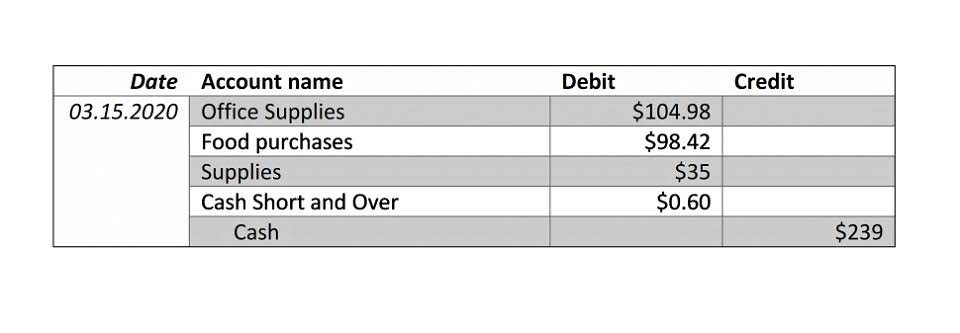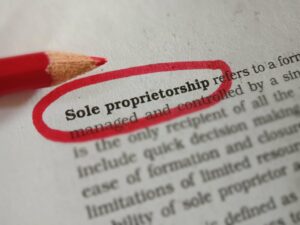
Learn how to get Online Accounting donations for a fundraiser and raise more money for your nonprofit. Major donors, corporate sponsors, and recurring donors can all be excellent sources of reliable funding. These gifts create a more significant impact that you can account for in your financial plans, but only if donor retention is top of mind. Within your nonprofit, you might have an internal role as your bookkeeper and choose to hire a separate accountant. You can also outsource the accounting function to a firm to collaborate with your bookkeeper. Internal controls don’t mean that you don’t trust your organization’s staff members.
What the New FASB Accounting Standards Will Mean for Your Nonprofit
These include program services, management and general, and fundraising expenses. A clear understanding of functional expenses is crucial for both internal decision-making and external reporting to stakeholders and donors. It is essential for nonprofits to maintain detailed records and documentation of all donations, as this information will be needed for financial reporting and tax compliance purposes. Additionally, tracking contributions helps nonprofits measure the effectiveness of their fundraising strategies and https://www.bookstime.com/ make data-driven decisions for future initiatives. In the specialized field of nonprofit accounting, having the right tools and resources can significantly enhance efficiency and accuracy.
Tracking labor and services.
Joining professional organizations and networking with industry peers can provide invaluable resources and support. It is advisable for nonprofits to consult with experienced nonprofit accounting firms, which can provide guidance tailored to individual needs and compliance requirements. In addition to GAAP, nonprofits must also comply with FASB 117, the Financial Accounting Standards Board’s Statement of Financial Accounting Standards No. 117 (FASB 117). FASB aims to develop and issue accounting standards through an inclusive and transparent process intended to promote useful information and decision-making by the NPO board, donors, grant funders, and other stakeholders. Nonprofit cash flow statements will refer to “change in net assets” instead of “net income,” and will sometimes list cash flows that are restricted to certain uses. Just like the statement of financial position, the statement of activities keeps net assets that have conditions and stipulations attached to them separate from unrestricted funds.
- Unrestricted net assets, which are sometimes called reserves, include things like buildings and other illiquid net assets, value you don’t have immediate access to and that’s unavailable to pay your bills.
- This nonprofit accounting guide is great for anyone wanting to learn the foundation of nonprofit accounting.
- You’ll list revenue and expenses accrued over the year and create alignment with any restricted funds.
- In this document, you’ll record your nonprofit’s revenue and expenses from the year, to demonstrate how finances have been utilized.
- Take our 2-minute survey to find out if outsourced accounting and bookkeeping is a good fit for your organization.
- Understanding the basics will help you better manage and plan your programs in a way that brings the most value from your finances.
- Our experts give you an independent, third eye visibility, and objective review of your financial practices to ensure you remain compliant.
Career Prospects and Salary Expectations in Nonprofit Accounting

In it, you list all assets (donations) and liabilities (expenses) and arrive at your net assets. Nonprofit organizations have tax-exempt status with the IRS and operate in the best interest of their communities. That comes into play when we examine how nonprofit accounting differs from the best practices a for-profit organization might follow.

Statement of financial position
- To make nonprofit accounting more efficient, organizations can leverage accounting software specifically designed for nonprofits.
- For example, having one person responsible for recording expenditures and another approving the payments ensures that someone continually monitors all financial transactions.
- Another aspect of nonprofit accounting that helps organizations stay accountable to their finances is the nondistribution constraint.
- In accordance with these standards, there are several types of documentation that your organization should be aware of.
- But, when you grasp how to read various accounting documents, it becomes much easier to understand how finances function and move at your organization.
- Even if your nonprofit consists of only two employees, there should still be a “checks and balances” system in place.
- The Internal Revenue Service (IRS) is responsible for overseeing these organizations and ensuring they comply with applicable tax laws.
It is essential to create an annual operating budget that aligns with the organization’s mission and strategic goals. Regular audits and the use of comprehensive nonprofit accounting software can aid in maintaining compliance. It is imperative for nonprofit organizations to stay current with evolving standards and practices by engaging in continuous learning and leveraging technology.
- For many larger nonprofits, the accrual basis provides a more comprehensive view of finances, assisting in strategic planning and management.
- Just like the statement of financial position, the statement of activities keeps net assets that have conditions and stipulations attached to them separate from unrestricted funds.
- From setting your financial goals to ensuring adequate revenue, it all starts with your donors.
- Understanding these complexities is essential for anyone considering a career in this field.
- This system categorizes financial data into specific funds, each with particular purposes or restrictions.
Financial statements
- Nonprofit accountants must be detail-oriented, analytical, and have a high level of financial acuity.
- The statement of activities (also sometimes called the operating statement) is like the nonprofit version of the income statement.
- They’ll help make sure all best practices and internal controls are implemented, ensuring smarter finances.
- Donor retention is all about showing donors gratitude, reaching out regularly with updates, and helping them see the impact they’re making.
- Joining professional organizations and networking with industry peers can provide invaluable resources and support.
- If you have a nonprofit organization, working toward making the world a better place is likely your top priority.
Essentially, the Form 990 is the IRS’s method of evaluation to make sure your nonprofit is financially honest and legitimate. For example, if you have $50,000 of restricted assets set aside for your scholarship program, then decide to provide a $5,000 scholarship, you’re not losing those funds. Nonprofit accounting professionals must adhere to accounting services for nonprofit organizations specific guidelines when they create reports. The primary guidelines your organization should know about are the GAAP standards.

Not only is a financial audit NOT a bad thing, it can actually be a very good thing. A nonprofit audit is meant to ensure the accuracy of the organization’s financials, as well as the financial health of the organization. In addition, when audit results are published for the public, the results aid in financial transparency with your current and future donors.

They’ll have experience helping organizations like yours minimize their tax bill and make sure you aren’t breaking any tax code rules. Just because your nonprofit qualifies as tax-exempt under Section 501 doesn’t mean that all of your donors’ contributions qualify as charitable deductions. And it doesn’t mean that all of the activities your nonprofit spends money on aren’t taxable. Tax-exempt nonprofit employees are still subject to employment taxes, and your nonprofit could still be subject to sales, real estate and other taxes depending on which state it’s based in. This is the part of the tax code that concerns charities, nonprofits, and religious organizations that are exempt from paying federal taxes to the IRS. Nonprofit-friendly accounting software shouldn’t just allow you to create professional-looking budgets.
